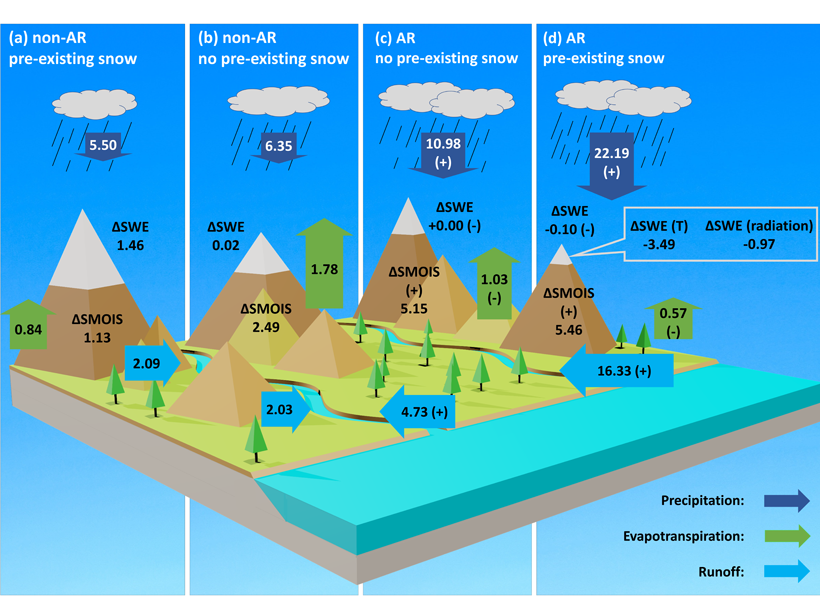Source: Journal of Geophysical Research: Atmospheres
Atmospheric rivers (ARs) are long narrow bands of intense poleward moisture transport originating from the tropics. They are responsible for a large fraction of heavy precipitation, snowmelt, and flooding events in the western United States. The connections between ARs and surface hydrology are important scientifically and societally, but a lack of observational data has limited systematic analysis and understanding.
Based on a long-term high-resolution climate simulation, Chen et al. [2019] offer one of the most comprehensive evaluations of land surface energy and hydrologic responses to ARs to date. Their study reveals the unique meteorological conditions of precipitation, air temperature, and radiation associated with ARs and quantifies their impacts on surface hydrological processes. The study highlights the intensification of snow ablation by ARs and the important role of ARs in the interannual variability and seasonal cycle of water resources in the western U.S.
This study lays the foundation for future studies on how climate change may affect the surface hydrologic responses to ARs.
Citation: Chen, X., Leung, L. R., Wigmosta, M., & Richmond, M. [2019]. Impact of atmospheric rivers on surface hydrological processes in western U.S. watersheds. Journal of Geophysical Research: Atmospheres, 124. https://doi.org/10.1029/2019JD030468
—Minghua Zhang, Editor in Chief, JGR: Atmospheres
Text © 2019. The authors. CC BY-NC-ND 3.0
Except where otherwise noted, images are subject to copyright. Any reuse without express permission from the copyright owner is prohibited.

